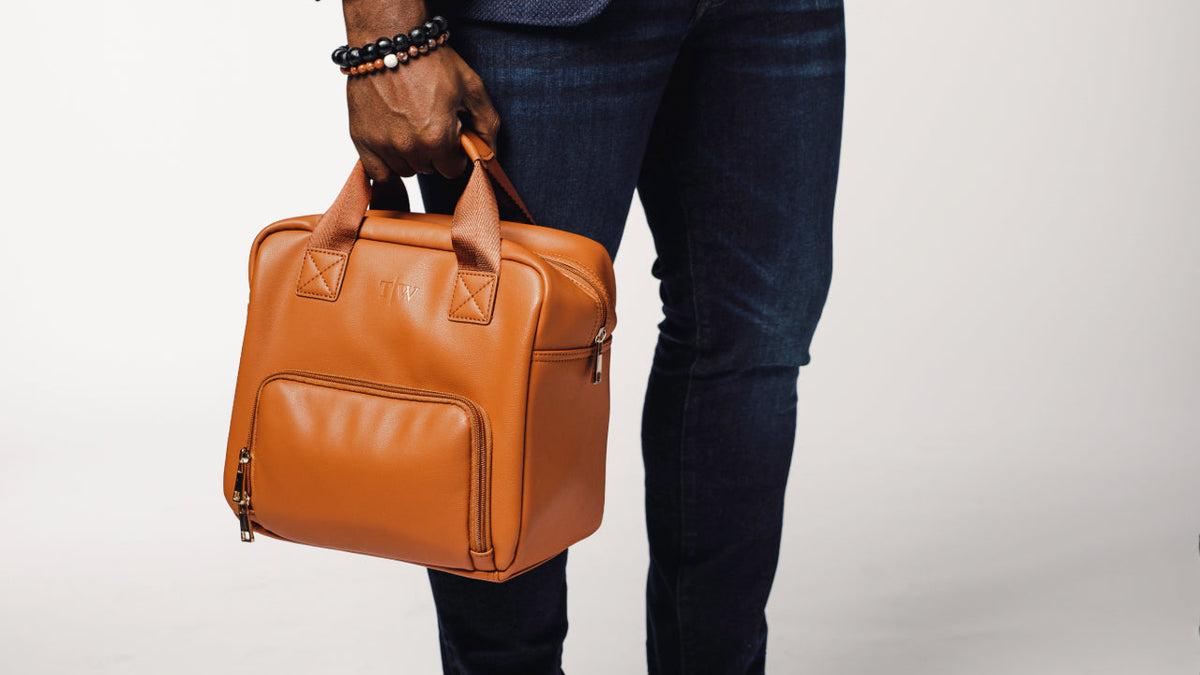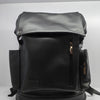

Corporate gifts for employees have the power to leave a lasting impression when chosen thoughtfully. Take Google, for instance. They once selected our branded bags as part of their gifting strategy. Years later, Google employees still use those same bags—proof that a well-chosen gift can remain meaningful and practical over time. This isn’t just luck; it’s the result of intentional gifting strategies. Success in corporate gifting goes beyond the initial wow factor—it’s about creating gifts that endure, resonate, and add value. Keep reading to discover how custom corporate gifts for employees and personalized branded gifts can achieve this lasting impact.
Successful gifting is about creating gifts that endure, not just initial excitement.
Custom and personalized gifts enhance long-term impact and value.
Intentional gifting strategies ensure lasting use and practical value.
Success in gifting is about longevity, not just initial impact.
The Evolving Goals of Corporate Gifting
Corporate gifting has transformed significantly over the years. What was once a straightforward approach focused solely on brand visibility has evolved into a more personalized and meaningful practice. This shift reflects the changing priorities of modern businesses, which now emphasize creating long-term connections over short-lived impressions.
Traditional Goals of Corporate Gifting
In the past, corporate branded gifts were primarily designed to promote the company’s name and logo. Items like mugs, pens, and t-shirts prominently displayed logos to keep the company top-of-mind for recipients. The success of these gifts was often judged by their ability to make the brand visible to others, even if the items themselves were not particularly useful or appealing.
The focus was on achieving immediate reactions or acknowledgment. Gifts were frequently distributed during events or marketing campaigns to spark excitement. However, these gifts' practicality and long-term utility were rarely considered, often leading to them being shelved, discarded, or forgotten. Corporate gifting during this period prioritized standardization, offering promotional gifts for employees that were generic and impersonal, with little thought given to the individual recipient’s needs or preferences.
A Modern Approach to Corporate Gifting
Today, the goals of corporate gifting have shifted to prioritize the lifecycle of the gift—how often and how long it is used. Modern businesses understand that a gift’s value lies in its ability to integrate seamlessly into the recipient’s daily life. A well-thought-out gift, such as a high-quality branded employee item like a tote bag or lunch carrier, becomes essential. This shift reflects a broader understanding that utility and longevity are key indicators of a gift’s success.
Additionally, the emphasis has moved from promotional to personalized and practical gifting. Modern recipients appreciate custom corporate gifts that reflect thoughtfulness and care, such as items engraved with their initials or designed with their unique preferences in mind. Personalized corporate gifts create a sense of individuality and value, making recipients feel appreciated rather than treated as just another name on a list.
Another hallmark of this modern approach is the use of subtle branding. Companies now recognize that overly conspicuous logos can make recipients feel like walking advertisements, diminishing the gift’s appeal. Branded company gifts today often feature minimal or internal branding, ensuring the gift remains tasteful and desirable. Focusing on the recipient’s experience, these gifts help strengthen the connection between the individual and the brand, creating a positive and lasting impression.
Corporate gifting is not just about making a statement but about creating lasting value.
The Lifecycle of a Corporate Gift: A New Metric for Success
A corporate gift's lifecycle refers to its usefulness duration and the value it brings to the recipient. While traditional success metrics often focus on the initial impression, a more effective measure lies in the lifecycle of the gift—how frequently and how long it is used.
A successful corporate gift remains in regular use for months or even years. Items that are practical, meaningful, and aligned with the recipient’s needs are more likely to achieve this. Custom corporate gifts, such as versatile bags or personalized accessories, are designed to seamlessly integrate into daily routines, ensuring they are appreciated and frequently used. The more a recipient engages with the gift, the stronger the connection to the brand that provided it.
Identifying Common Gifting Mistakes
Many corporate gifting strategies fail to prioritize the lifecycle of the gift, leading to missed opportunities for long-term impact. Here are common pitfalls to avoid:
Choosing impractical or generic items: Generic promotional gifts for employees often lack appeal and end up unused or discarded. Avoid items that don’t align with the recipient’s lifestyle or interests.
Overloading with branding: Excessive logos or branding can deter recipients from using the gift. To maintain the item's appeal, opt for subtle or internal branding on corporate branded gifts.
Prioritizing cost savings over quality: Low-quality items reflect poorly on the company and fail to create a lasting impression. Investing in high-quality branded company gifts enhances the recipient’s experience and ensures longevity.
Why Lifecycle Matters
The lifecycle of a corporate gift directly impacts its effectiveness in reinforcing brand loyalty. Gifts with a long lifecycle offer several benefits:
Items regularly remind recipients of the company’s thoughtfulness and values over time.
A well-designed custom corporate gift subtly promotes the company whenever it’s used.
Personalized corporate gifts foster a deeper emotional connection, making recipients feel valued. For example, imagine gifting employees a custom lunch bag made of sustainable materials. It aligns with modern values, and its daily use reinforces positive associations with the company.
The lifecycle of a corporate gift directly impacts its effectiveness in reinforcing brand loyalty.
Strategies to Increase the Lifecycle of Corporate Gifts
Maximizing the lifecycle of corporate gifts is crucial for ensuring they provide lasting value to recipients while reinforcing the brand’s presence. Companies can create gifts that recipients have used and appreciated for years by focusing on thoughtful design, practicality, and personalization. Below are key strategies to extend the impact of corporate gifts for employees and make them meaningful, memorable, and enduring.
Minimize Branding for Greater Appeal
One of the most common mistakes in corporate gifting is excessive branding. While branding is essential for reinforcing your company’s identity, it should be done thoughtfully to ensure the gift remains desirable. Recipients often hesitate to use items with large, loud logos because they don’t want to feel like “walking billboards.” By minimizing branding, companies create corporate branded gifts that recipients proudly use regularly, ensuring longer lifecycles and better brand visibility.
Choose Unique and Practical Gifts
The key to extending a corporate gift’s lifecycle is choosing items that recipients find both unique and practical. Gifts that people use daily or frequently—such as vegan leather totes, high-quality lunch bags, or versatile accessories —naturally become staples in their routines.
Focusing on quality over quantity ensures that the gift stands out and makes a lasting impression. Instead of generic promotional gifts for employees, select custom corporate gifts that reflect thoughtfulness and creativity. Personalized touches further enhance the gift’s uniqueness, making it something recipients will cherish.
Personalize for Emotional Connection
Personalization is a powerful way to create a deeper emotional connection between the recipient and the brand. Adding names, initials, or personalized messages to the gift or packaging makes it feel tailored and unique.
Consider enhancing the unboxing experience by presenting the gift in a custom-designed box with a thoughtful note or branding that complements the overall design. Personalized corporate gifts show recipients they are valued as individuals, encouraging them to use and appreciate the gift for more extended periods.
Incorporate Sustainability
Modern recipients value sustainability, and incorporating eco-friendly materials and designs into corporate gifts can significantly increase their impact. Gifts made from sustainable materials, such as recycled fabrics or vegan leather, demonstrate care for both the recipient and the environment.
Sustainable corporate branded gifts align with contemporary values, making them more likely to be appreciated and used frequently. For example, an eco-friendly branded employee gift like a reusable tote bag or water bottle serves a practical purpose and reflects the company’s commitment to environmental responsibility.
Choose corporate gifts that are both unique and practical to extend their lifecycle.
Measuring Success in Corporate Gifting
Corporate gifting is not just about giving—it’s about ensuring the gift leaves a lasting impression and serves its intended purpose. To determine whether corporate gifts for employees and clients meet these goals, businesses must measure success using clear indicators and effective methods.
Key Indicators to Evaluate
The success of corporate gifting can be evaluated through several critical metrics:
1. Longevity
The longer a gift remains in use, the more successful it is. High-quality branded company gifts, such as durable tote bags or personalized accessories, should seamlessly integrate into the recipient’s daily routine, ensuring frequent and sustained usage over months or even years.
2. Feedback
Direct input from recipients is a vital indicator of success. If employees or clients express satisfaction and appreciation for custom corporate gifts, it signals that the gifting strategy resonates with them. Personalized corporate gifts often generate positive feedback because they show thoughtfulness and consideration for the recipient’s preferences.
3. Branding Impact
Practical corporate branded gifts strike a balance between subtle branding and practicality. A gift with tasteful, understated branding ensures the recipient uses it regularly without feeling like a walking advertisement. This sustained use keeps the brand visible naturally and authentically.
Tools and Methods for Assessment
Measuring the impact of corporate gifts requires a combination of qualitative and quantitative approaches:
1. Employee or Client Surveys
Surveys are an excellent way to gauge recipient satisfaction. Ask employees or clients about the gift's usefulness, how often they use it, and whether it left a positive impression. This feedback can help refine future gifting strategies for promotional gifts for employees to better align with recipient needs.
2. Observations in Use
Monitoring the presence of gifts in everyday scenarios provides valuable insights. For instance, observing branded employee gifts used at meetings, events, or in the workplace indicates their practical value and the brand’s visibility.
3. Retention Metrics
For employee gifting, retention metrics can serve as an indirect measure of success. Employees who receive high-value, meaningful corporate gifts for employees may feel more valued and engaged, which contributes to increased loyalty and reduced turnover.

Measuring corporate gifting success requires balancing quality, practicality, and connection.
Conclusion
Measuring the success of corporate gifting requires a thoughtful balance of quality, practicality, and connection. By prioritizing longevity, personalization, and sustainability, businesses can create corporate gifts that resonate profoundly and are used frequently by employees and clients. Avoiding pitfalls like excessive branding and generic items ensures the gifts stand out and align with modern values. Success isn’t just about visibility—crafting an experience that reflects your brand’s care and commitment. With these strategies in mind, corporate branded gifts can become a powerful tool for building lasting relationships and leaving an enduring impression.
Corporate gifting success relies on balancing quality, practicality, and connection.
Avoid excessive branding and generic items to ensure gifts stand out.
Success is about creating an experience that reflects your brand’s care.
Corporate gifts boost employee motivation and retention. Here are our top 5 memorable corporate gifts for employees.
FAQs
What makes a corporate gift successful?
A successful corporate gift remains practical, meaningful, and used regularly. It should align with the recipient’s needs and preferences, fostering a lasting connection with the brand.
How does sustainability affect corporate gifting success?
Sustainable gifts resonate with modern values, showing that your brand cares about the environment. Eco-friendly corporate branded gifts will likely be appreciated and used more frequently, extending their lifecycle.
How do you balance branding and practicality in corporate gifts for employees?
Successful corporate branded gifts have subtle branding, such as internal logos or small designs, that don’t overwhelm the recipient. This approach keeps the gift practical and desirable while maintaining brand visibility.










